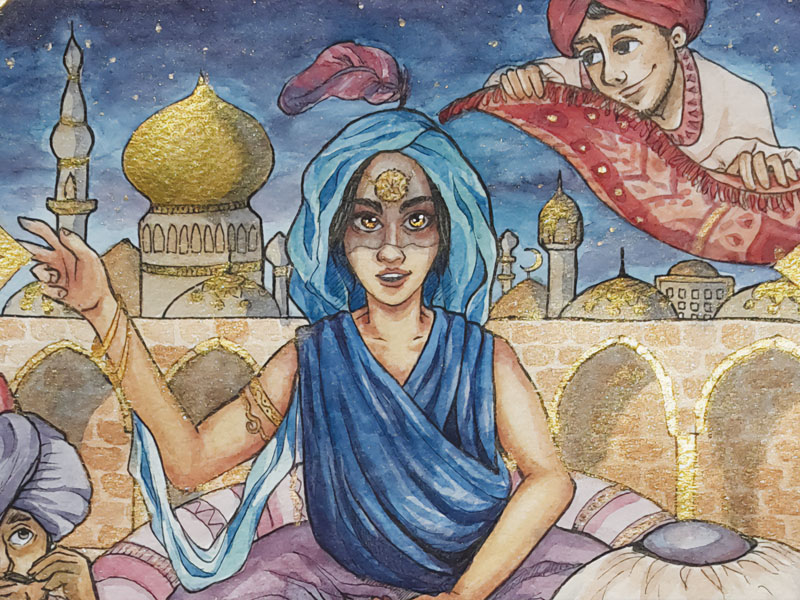Heroism in popular literature
Issue 36

Hisham Banshawi
Morocco
Some people consider folk biography a type of verbal art that includes folk history’s events and heroes. This is because verbal folk arts are considered constantly renewed historical phenomena because they are simple and they satisfy the human need to narrate and listen to stories. As a result, folktales as a phenomenon are common to all cultures.
It is no coincidence that heroism is associated with a society’s ideal ethical system. Heroism reflects a society’s psychological and behavioral aspects such as bravery, chivalry and self-confidence. We can observe that heroism in folktales is related to socially desirable behaviours. We looked at the rural areas of south Egypt.
This relationship confirms that such folktales are narrated in order to inspire Arab heroes, and that folk biographies give people a chance to express their hopes, aspirations, failures and successes.
People project their ideals onto their heroes and perceive them as extraordinary beings. They compose poems and songs in their heroes’ honour; these eventually become collections of stories and epics.
Even if these heroes hail from foreign cultures, people are happy to glorify them once they learn of their attributes.
The source of heroism is the people’s admiration for the hero. The ideal life is realised after heroes overcome evil, weakness and imperfection. By subduing nature, heroes approached the status of semi-gods in people’s minds.
Even if folk biographies are primarily heroic epics, they are also tales about love and other emotions.
In folk biographies, every hero has a woman supporting him or fighting him, and the women’s roles are no less important than the men’s. There are whole folk biographies that feature a woman as the central character with men as her subjects. In folk biographies, the relationships between men and women are quite progressive.
The folk biography is generally characterised by an important stage when the hero falls in love. The development of the character who will eventually become the hero depends on his concept of manhood and his struggle to prove himself. After his success in the aforementioned stage, the woman and love play a significant role in shaping the hero’s characteristics and helping him find his path. By doing so, the woman symbolically shares the hero’s victory.



































































